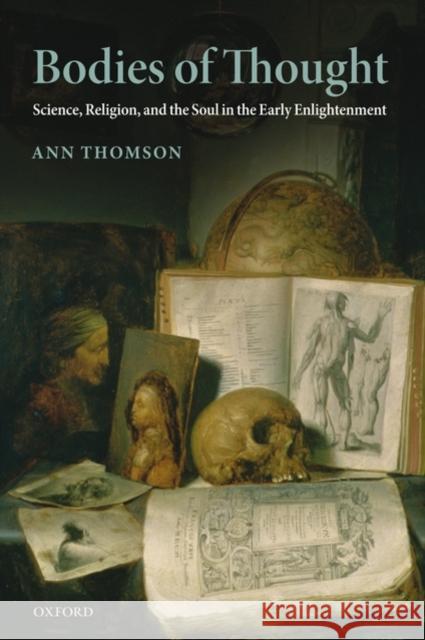Bodies of Thought: Science, Religion, and the Soul in the Early Enlightenment » książka
Bodies of Thought: Science, Religion, and the Soul in the Early Enlightenment
ISBN-13: 9780199236190 / Angielski / Twarda / 2008 / 320 str.
Examining the development of a secular, purely material conception of human beings in the early Enlightenment, Bodies of Thought provides a fresh perspective on the intellectual culture of this period, and challenges certain influential interpretations of irreligious thought and the "Radical Enlightenment."
Beginning with the debate on the soul in England, in which political and religious concerns were intertwined, and ending with the eruption of materialism onto the public stage in mid-eighteenth-century France, Ann Thomson looks at attempts to explain how the material brain thinks without the need for an immaterial and immortal soul. She shows how this current of thinking fed into the later eighteenth-century "Natural History of Man," the earlier roots of which have been overlooked by many scholars.
Although much attention has been paid to the atheistic French materialists, their link to the preceding period has been studied only partially, and the current interest in what is called the "Radical Enlightenment" has served to obscure rather than enlighten this history. By bringing out the importance of both Protestant theological debates and medical thinking in England, and by following the different debates on the soul in Holland and France, this book shows that attempts to find a single coherent strand of radical irreligious thought running through the early Enlightenment, coming to fruition in the second half of the eighteenth century, ignore the multiple channels which composed Enlightenment thinking.











